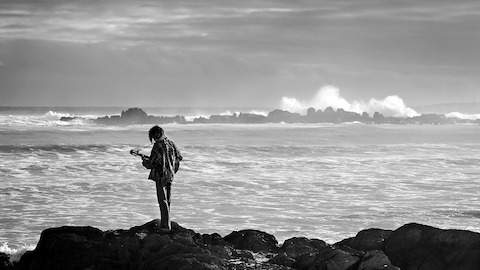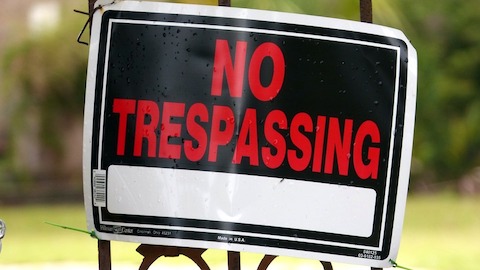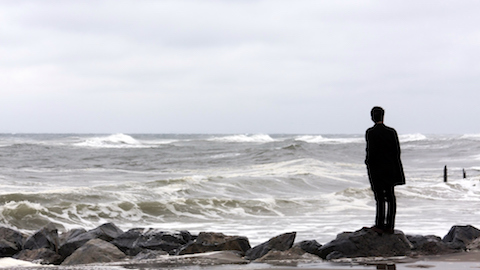
James Russell Lowell,
Among my Books, 1870
I discovered the existence of Lars Svendsen thanks to a forum discussion about - of all things - the modern apparel industry. One of the comments mentioned in passing his "Fashion: A Philosophy" and the idea of someone writing a philosophical analysis of Fashion intrigued me… so I checked out the book on Amazon. In doing this, I discovered that Svendsen was going through a series of concepts (Amazon currently lists Work, Fashion, Boredom, Freedom, Loneliness, Fear, Evil…) analyzing each through the lens of Philosophy. Of these, Loneliness seemed the most compelling to me, much more than Fashion: while I never really devoted much time to Fashion, I definitely spent most of my life being alone, and while it may be a bit late for changing this I am always eager to learn something new or to better understand things I know already, so I ordered "A Philosophy of Loneliness".
A little aside - having more or less neglected Philosophy after high school I had no clear idea of what "Philosophy" is supposed to mean, especially in modern terms. So I am doubly happy about this book: not only it provides valuable insight into the main topic, but it also gave me a clear example of how Practical Philosophy is supposed to work.
In 138 pages (plus notes and a full index) the author analyses the concept of "being alone", alternating literary and scientific sources to illuminate a concept which at the same time familiar to everyone, and yet seemingly impossible to define in objective terms.
What do we know about "being alone", after all? The author himself clearly states in his introduction that working on the book he discovered that most of what he "knew" about loneliness would prove to be incorrect if not completely false.
I have decided to structure the "review" as follows: for each of the eight chapters I will juxtapose a brief description of the contents (on the left) with what I - personally - found poignant based on my own experience at being "alone".
One more thing: in reading this (and especially in browsing it again to prepare this post), I often echoed some concepts I learned during a philosophical seminar by Cacciari - identity/difference can be defined only in terms of each other: I don't remember Loneliness to be topic during the seminar, but the general concept of "the concept of oneself existing only in juxtaposition with others" kept resurfacing for the whole seminar.

1 - The essence of loneliness
Being a Philosopher, Svendsen starts by trying to define what loneliness means.
Alone, for example, has no predefined positive or negative value, unless you add context. And yet Loneliness is automatically associated with isolation, despair, and sadness.
But "being alone" and "being lonely" are not necessarily the same thing. In fact (the author often refers to specific psychological or sociological studies) the negative part of loneliness seems to be a matter of quality instead of quantity: a person may have a large circle of social contacts, and still feel extremely alone because none of these are providing the desired level of closeness.
This intangible "quality" of connection seems to be somehow connected to "life meaning": i.e. realizing that no-one else really cares about your existence.
This can easily result in a psychological conundrum: craving meaningful social contact, and at the same time frantically looking for signals that will prove that the others don't really care.
The chapter concludes with a categorization of the three types of Loneliness (Chronic, Situational and Transient) and with the devastating effects that Loneliness can have on health (mental, of course, but also physical).
The idea of quality trumping quantity (especially when dealing with social contacts) surely resonated with me. But at the same time, I wonder a bit if there is some (darker) connection with narcissistic traits: maybe people that prefer being alone are somehow considering most other people "below them"?
The part about how loneliness can severely impair your health is a concern to me, too: sometimes I wonder if the preference for being alone could turn into a slippery slope. Having a regular job plus regular training at the dojo ensures that I am never completely severed from interaction with people, but I wonder how things will develop when I am retired (and presumably not being able to train regularly if at all).

2 - Loneliness and Emotion
"Loneliness has both an affective and a cognitive side…" - the author then argues that it is primarily the affective part that makes Loneliness something different from "just being alone". And yet loneliness as an emotion is rarely considered in works that try to analyze emotions (preferring fear, love, or anger).
Most of the chapter seems to struggle with how to define emotions, and why - according to the author - Loneliness qualifies as one of these.
Loneliness is a specific type of sadness that is born when our desire for social connection is not satisfied.
"I am not a Stoic, but I play one on TV" - therefore I am pretty guarded regarding emotions in general.
As a consequence, this chapter did not resonate much with me, except for some parts when the author explains how Loneliness, in particular, can also shape our expectations (mostly for the worst) when approaching an opportunity for social interaction.
This is one of the recurring themes of this work: being often dissatisfied by social situations because they somehow are not really what we expected or hoped for.

3 - Who are the Lonely?
How to identify (and then quantify) who are the Lonely? This is no easy task because Loneliness is a completely subjective state (not to mention that it can also fluctuate in time).
Despite these caveats, the author makes an effort to put some numbers on the table by analyzing surveys about loneliness (obtained in his native Norway) and trying to correlate these with various other survey data, like gender, income, and so on.
The numbers, despite being not very precise, seem to disprove most preconceptions about what Loneliness is (just as an example: despite media claims to the contrary, Loneliness does not seem to be rising in modern societies).
This chapter opens with the following quote (by David Foster Wallace):
"Lonely people tend, rather, to be lonely because they
decline to bear the psychic costs of being around other humans.
They are allergic to people. People affect them too strongly."
I think this sums it up nicely for me.
In any case, despite my own dabbling in data analysis, I am not particularly interested in sociological studies or statistics, not when dealing with emotions at least.

4 - Loneliness and Trust
Data make a brief appearance at the start of this chapter too - Loneliness and Trust have a fairly strong inverse correlation: the more you trust others, the less lonely you feel, conversely lonely people tend to find social situations threatening and seems unable to trust others to be supportive and reliable.
This relationship seems an almost general phenomenon (and it also has at least one exception: Japanese citizens show a very high level both in Trust and Loneliness).
Most of the chapter is then devoted to exploring what creates or reinforces Trust in a country.
This chapter resonated much more with my own experiences (even if it was not very different from the previous one).
I do not believe to be paranoid, i.e. I am not expecting everyone else to be out to get me (or even actively trying to get an advantage on me) but I definitely recognized myself in the sentence "unable to trust others to be supportive and reliable".
I am not sure if I can be considered a reliable narrator in such matters but I often find myself disappointed at the dependability of others.
This, of course, created a feedback loop so that I try to avoid having to depend on others for anything (and - perversely - in the rare case I actually need something from someone else even the tiniest complication will be magnified out of proportion).
By pondering this a little more, I believe that at least in my case the lack of trust is more about something like "trusting someone else to be able to help" than "trusting someone else not trying to take advantage by my situation".
I am often reminded of an (alleged) African Proverb that goes like "if you want to go quickly, go alone. If you want to go far, go with others".
I can easily grow impatient with the phases where you have to build consensus (even just about where to go for pizza) among a group of people.

5 - Loneliness, Friendship, and Love
The chapter opens by stating that only someone who can experience loneliness can exhibit love or friendship. Being able to appreciate "otherness" is a fundamental ingredient of Loneliness, Friendship, and Love. The author says that both Love and Friendship are extremely complex concepts and each would deserve a much more detailed treatment. Nevertheless, he devotes the rest of the chapter to a brief overview of each.
On Friendship:
- Philosophy tends to describe things in a very idealized manner because it strives to capture the very essence of an idea maybe for this reason Friendship has been less "popular" - as a subject of philosophical analysis - than Love, but on the other hand, it has been treated in a more worldly manner.
- Best friendship is described as a friendship of virtue among equals.
- Most of this section is about Kant's thoughts on the topic: everyone feels the desire to open their mind to someone else, but at the same time we are aware of the danger of doing so - therefore a true friend is always a part of a small, carefully selected group.
- Modern times seem to push people towards a sort of segmentation: friends for different purposes and needs.
- The main difference between Friendship and Love is that the latter poses even larger demands on "identity sharing": most people have no problems with the idea that a friend has other friends, while we cannot accept that whom we love loves someone else in turn.
On Love:
- Love presupposes an independent, separate individual and then tries to overcome this separation (a lot of space is devoted to analyzing Aristophanes tale from Plato's Symposium)
- The problem with Aristophanes (and the whole idea of Romantic love, which is fundamentally based on this) is that it makes it impossible for your loved one to live up to your expectations: they cannot make you perfectly whole (again) because no matter how perfect they are, they will always be someone else.
- Perhaps as a consequence, most depictions of love in literature are more about the first intoxicating phases than about "lifelong love".
The rest of the chapter provides a section on skepticism and cynicism, presumably to balance the Love part a bit. But most importantly it provides a synthesis of all the elements presented so far: you need to care for someone and for someone to care about you because this is what constitutes yourself as a person.
Commenting on this specific chapter is difficult for me.
I have to admit that some of the comments provided in the "Cynicism" sub-chapter are a bit too close for comfort.
Apart from that when I think about the people I consider as friends I tend to notice that the main common trait is that I somehow appreciate their intellectual side more than anything else. I mean: I like the company of people that can teach me something new.
One of the less known quotes by Jodorowsky goes something like "A real Master is not necessarily a man… or a woman, I mean, a member of the human race… it could be a dog, a tree, the wind: anyone or anything that teaches us something is a Master" - despite this, I am not very open to forming new friendships.
This echoes one of the main themes of the book: one possible cause for Loneliness is the unjustified expectations we have about others.
In other words, this part made me consider the possibility that my small social circle could be a function of an inflated ego.
This hypothesis is corroborated by the fact that I usually prefer to associate myself with one (maximum two) people at a time, no matter how close I feel to them. I prefer to spend time with a single person at a time, instead of going - say - to a party even if all other invitees are close friends or relatives.
As soon as a third or fourth person joins us, my degree of interaction with the group decreases, and I tend to fade into the background.
Regarding love and the fact that lonely people usually set unrealistic high standards for relationships, I have often had the impression (which the author somehow confirms) that entertainment (novels, tv, movies, comics) are probably much more of a cause than just "Internet": people born after the 50s were constantly bombarded by fictionalized, idealized and glamourized examples of love, friendship, personality, courage and so on… I think it is a bit inevitable to grow up disillusioned if not a bit disappointed to realize that people we interact with are much more "normal" than what we expected.

6 - Individualism and Loneliness
This chapter is entirely dedicated to discussing the idea that Loneliness and Individualism are constantly eroding political and societal values. The author tries to present some counterpoints to it:
- Simmel described Individualism as either Quantitative (whose main characteristic was "Independence") or Qualitative (defined more in terms of how a person stands out as "singular" against the backdrop offered by social rule).
- As predicted by Schumpeter - more and more individuals decide to eschew the "sacrifice" of building a family: in 1950 9% of American households were comprised of a single individual, and 22% of the citizens were single. Now 50% of American adults are singles and the percentage of "solo households" is at 23%
- And yet, people who decided to live "solo" are not automatically segregated from social life - quite the opposite: solo dwellers seem to visit friends and relatives more frequently and have a higher chance to be part of a social group.
- Most significantly, the percentage of people that declare to experience loneliness has remained more or less stable even if living alone is much more common than before.
- Another of the prevalent journalism theories (internet and social media will increase individualism and loneliness) seems not to be supported by empirical studies: those who use social media report having a more active social life and more frequent personal interaction with other (outside of social media itself, of course).
Not much to add about this, either. But in this case, is less due to any reticence in discussing personal matters and more to the fact that I am not very concerned about societal level trends.
Despite this, the chapter was interesting for me because it tried to put some numbers where most media reporting is repeating the same old song about how internet/social media is turning anyway in a sort of lonely self-recluse.
Some of the points raised here are tied up (albeit indirectly) in the concluding chapter: if we assume that Loneliness is in part caused by a sort of self-shame (i.e. we do not like the image that others reflect back at us, just like Watzlawick theorized) which makes us loathe the company of others, then the fact that we can now use Social Media to somehow try to influence how others perceive us may actually help us to be more "social".

7 - Solitude
The previous six chapters have been devoted mostly to Loneliness (which is, after all, the main topic). But the preceding chapters have also hinted and prepared this one, where Loneliness, so far described as something negative, leaves the center stage to its positive twin: Solitude. A surprisingly common theme, especially among Philosophers and Artists, is that being alone can actually be beneficial, and even sought after. The need to be alone is something that seems to develop together with Puberty (i.e. it is a natural trait in humans) but the first in-depth treatment of the dichotomy between Loneliness and Solitude arrives only in the XVIII Century. The idea of "being alone " as an essential ingredient for philosophical discernment is as old as Aristotle and echoed across all history (in the Middle Ages, for example, was considered in a religious theme: a way to reopen yourself to God). By juxtaposing views from different great thinkers (Rousseau, Heidegger, Thoreau) we start appreciating how Solitude can be a luxury, something that can be sought after, just like the company is sought after when you feel lonely. The main difference is that Solitude is something you must be able to enter and leave at will, only then it becomes a pleasure. The chapter concludes with the rather apt quote from Hauge:
It is sweet, solitude,
as long as the way back
to others
remain open.
After all, you don't shine
for yourself.
This was - for me - the most enlightening part of the whole book (together with the last chapter, as I explain below).
From this chapter I just pick this quote that perfectly sums up the whole book for me:
"In Loneliness, one is alone with oneself, while in Solitude, one is together with oneself."
The "positive" side of being alone is something that I am very familiar with (in fact, I spend most of my life in Solitude) but I never realized how Loneliness and Solitude were just two sides of the same coin, and especially how "being alone" is a sort of unavoidable part of our lives.
My native tongue has no real equivalent of Loneliness/Solitude, for a start: we only have one term for this, and it carries negative connotations. Maybe this is why in my country a preference for being alone carries a (minor) social stigma (and made me ambivalent about "being alone").
I have always been an Introvert but I never really considered this to be a positive trait: in fact, it even caused me a bit of envy/resentment towards people who were more extrovert than me (and their apparently effortless success in the social aspects of life).
The book clarified for me an important point, though: Solitude is something that we actively seek, while Loneliness is something that we try to escape. Apart from that, they are exactly the same thing: being alone (which in turn is something that happens quite often - in fact, humans are "alone" most of the time).
This also vindicates the points in the previous chapter: the internet and other elements of modern society give most of us more ways to enter the state of Solitude (when we are so inclined) while not cutting down on our chances to interact with others. So maybe the apparent increase in individualism and isolement that media constantly decry is just a consequence of Solitude becoming more "affordable". I would hazard that this may make feel us more lonely, too because when we seek company it is more probable that the people we are trying to reach have opted for Solitude just when we needed them more (this is my hypothesis, though, and not something the author mentions, unless I am mistaken).

8 - Loneliness and Responsibility
The concluding chapter states that while there is no reason to believe that Loneliness is growing, but it is still a substantial problem in the modern world.
The truth is that we all need others. And we need to be needed. What seems to be counterintuitive is that a lot of modern life seems to be designed to lower our need of interdependence (private homes, private means of transportation, do-it-yourself skills are all social markers of success and prosperity).
Being lonely is lacking acknowledgment of one's worth from others. As such, it seems to be something imposed from the outside: it is the rest of the world that seems unable to care, or care enough, for us.
What the author suggests, though, is that even if the (painful) condition of Loneliness is imposed on us from the outside, we need to find a way to deal with it by ourselves. And the first step to do it could be to reassess our expectations. If you feel constantly lonely, even if surrounded by family and friends that provide "typical" levels of acknowledgment and support, maybe there is something similar to a sort of emotional bulimia at work.
Ultimately, Loneliness is something you can never escape because it is a measure of your identity and the gap that exists between what you think of yourself and what others think of you. Sometimes the gap gets wider than what we can manage, and then we experience loneliness. But ultimately this is something we have to learn to deal with, and the responsibility aspect is that it is our loneliness, just like it is our life and nobody else can do it for us.
This last chapter provides not just a wrap-up but also, in a sense, what - at least to me - looks like very good advice (and a glimmer of hope) for people who feel lonely.
Being alone is a very natural part of the human experience. In itself, it should not be considered as positive or negative… it just is.
In particular, even if independence and self-reliance are positive traits you should avoid overindulging in these, just like you should avoid excess in any other parts of your life: "I do not need anyone's help" is just hubris, and you are always very close to finding out how wrong it could be.
Even if you live alone, you still need the whole society around you to function and thrive.
Even if you are surrounded by people, you still need some time for yourself to reflect upon and understand your own life.
Once again, the Stoics had it right:
“Make the best use of what is in your power, and take the rest as it happens. Some things are up to us and some things are not up to us.”
– Epictetus
The most important lesson from this book, for me, is that our relationship with "being alone" is ultimately one of the few things we have some power upon.
So we can at least try to do something to experience more Solitude than Loneliness.
A missing chapter?
There is one more facet of the whole "Being Alone" subject that I haven't seen discussed by the author (to be honest I am not pretending that I can do better than him: maybe he just thought that it did not fit in the way he wanted to present his analysis).
The idea predates (for me) reading the book, and goes back to reading a much older book (John Irving's "A Prayer for Owen Meany") - which includes this about Loneliness: "Rituals are comforting; rituals combat loneliness."
Since reading it I often mused about what is the actual relationship between loneliness and rituals. For sure a person spending a lot of time alone will create rituals and routines. But does this mean that rituals are only a symptom of loneliness? What if rituals were not just a cure, as suggested by Irving, but also a bit of a cause? Don't we all feel a bit disappointed when someone else (even a friend, a lover, a dear relative) somehow disrupts our little habits?
And yet, going back to the African proverb I quoted above, it does not necessarily mean that a lonely person is a prisoner of routine. If you do not have to consult with family or friends beforehand you can decide on a new course of action at the drop of a hat; at least in my experience the less co-dependency you have, the quicker you can decide and act upon your decisions.
- My attempt to explore the Solitude/Loneliness dichotomy in Japanese.
- Jon Morris reviews the same book in Popstar magazine.
- All we love we leave behind - A (solitary!) Role-Playing Game dealing with themes of isolation, abandonment, independence, and the passing of time.
- A webpage listing lots of support materials for Solo Roleplaying.
- The most important skill nobody taught to you - Rumination on Pascal's idea of Solitude.
- My first attempt to submit this to Hacker News failed to get any attention. Luckily the site managers asked me to resubmit a bit later and this time it managed to spark some interest and a few posts.
- Charles Chu was intrigued by this piece and decided to read the book (here is his take on the subject)
- The Legion lonely - "Over the past few decades, loneliness has reached almost epidemic levels, with men uniquely suffering its effects. How and why has isolation become such a threat?"
- All the lonely people - Loneliness is a serious public health problem - The Economist tackles the problem of increasing loneliness.
- Wikipedia on so-called Seattle Freeze - "… a widely held belief that it is especially difficult to make new friends in the city of Seattle, Washington, particularly for transplants from other cities."
- Designing cities to counter loneliness - Loneliness as a design problem.
- Yogic view of loneliness (and ways to overcome it).
- Nothing but Solitude - When Renaissance explorers went north, they found a lunar landscape here on earth.
- Things we lost in the flood - an MMO Loneliness …. "simulator".
- In April 2019, the softdroid.net blog kindly translated my essay into Russian and hosted it on their website.
- So, do we have a loneliness epidemic or not? (UK, 2019)
- No, we have a different kind of Epidemic, now (2020) and this has something to do with Loneliness, too.
- Physical impact of Loneliness, an article from PsychNewsDaily.com.
- Can you treat loneliness by inventing an imaginary friend? (Nautilus.com)
- You don't have to be alone to experience loneliness… (The Guardian)
- Lonely, but not always alone -Research from the US takes a look at the links between time spent alone and loneliness, finding high levels of loneliness in those that spend over 75% of their time with others.
- Solitude as the Antidote to Misanthropy